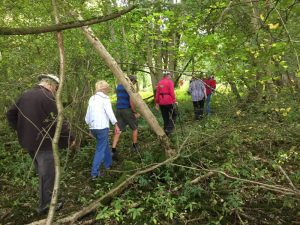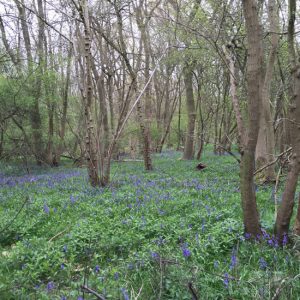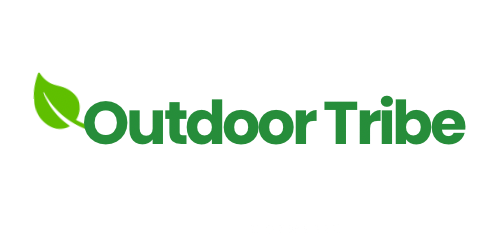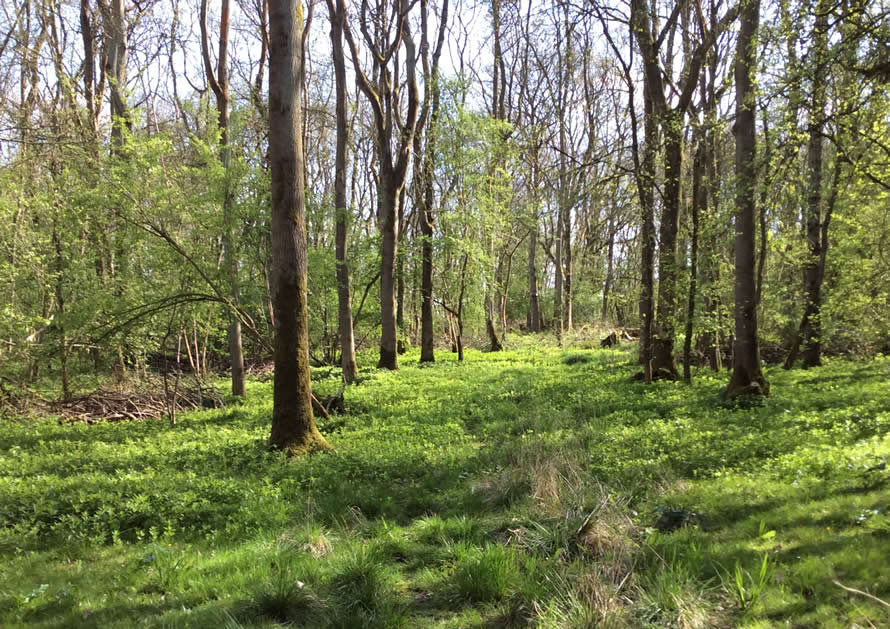Woodlands for wellbeing
Therapeutic landscapes have been defined as places that deliver physical, social and psychological wellness benefits. A research study on therapeutic landscapes by Gesler, 1992, explored why certain places are perceived to be therapeutic, while an earlier study by Ulrich (1983) suggested that encounters with nature can induce wakeful relaxation and positive emotional reactions.
Free natural therapy within a woodland landscape
Studies by O’Brien (in 2004 and 2005) determined that the impact of just spending time in woodland delivers stress reduction and mental and emotional well-benefits. There is increasing research that support the fact that trees make us feel better and that woodland provide valuable therapeutic landscapes.
We run regular Social Forestry sessions, helping people forge connections with nature that benefit themselves and also the woodland. If you’re interested you can read more about how we work and what is Social Forestry
Woodland are restorative environments and can contribute directly to both health and wellbeing. You can read more about these restorative aspects in Good from the Woods’ that explores how woodland promote improvements in health and wellbeing.
You can read more about these restorative aspects in Good from the Woods’ that explores how woodland promote improvements in health and wellbeing.
Being among trees aids illness recovery
Did you know that spending time among trees has been recognised in Japan and elsewhere as having medical benefits for prevention of disease and for helping people recover from illness?
In 1982, the Forest Agency of Japan proposed a new movement called Shinrin-yoku, forest bathing, to promote health and wellbeing. The scientifically-proven benefits of Shinrin-yoku include:
- Improvements to immune system
- Reduced blood pressure
- Improvement in mood
- Increased ability to focus
- Faster recovery from illness/surgery
- Increases in energy levels
- Better sleep
Shinrin-yoku is a recognized relaxation and stress management activity in Japan and in a growing number of countries worldwide.
Research has also shown that spending time in a woodland environment can help tackle obesity, coronary heart disease and mental health problems, with a growing number of studies being published that prove the case. You can read about some really interesting studies that have been undertaken by the Woodland Trust entitled “Healthy woods, healthy lives“.
This year we have also been involved with a project, in collaboration with the University of Northampton on woodland wellbeing research.
Trees can make you happier
 What’s clear from research studies is that access to a woodland environment can deliver significant improvements to an individual’s sense of wellbeing.
What’s clear from research studies is that access to a woodland environment can deliver significant improvements to an individual’s sense of wellbeing.
From my own experience I’m certain trees can contribute to helping make you feel happer, just through the very fact that when you are among them they definitely deliver feelings of relaxation and calmness.
Scientists tell us that trees emit phytoncide, chemicals that can help prevent people from contracting lifestyle-related diseases such as heart disease, diabetes, cerebrovascular disease, depression and hypertension.
So trees not only have a happiness effect but can also promote human health; powerful stuff. Here’s an extract from a much longer BBC programme exploring the secret power of trees
Other blog posts that might be of interest
Attending a social forestry session is a great way to start the week




Recent Comments